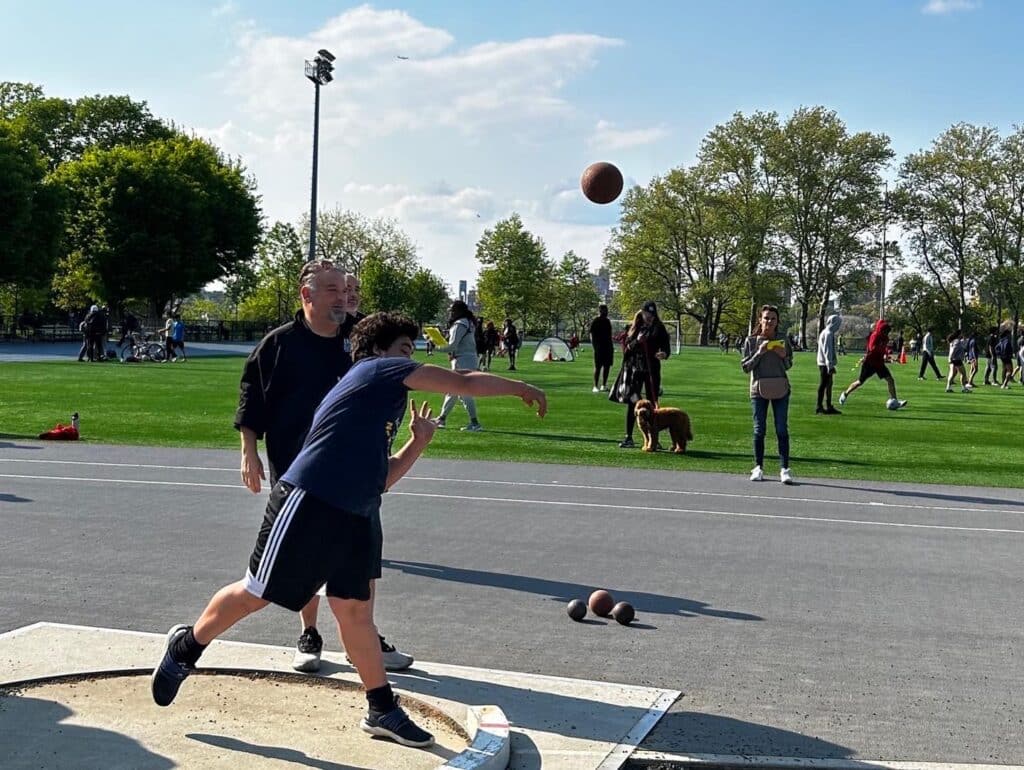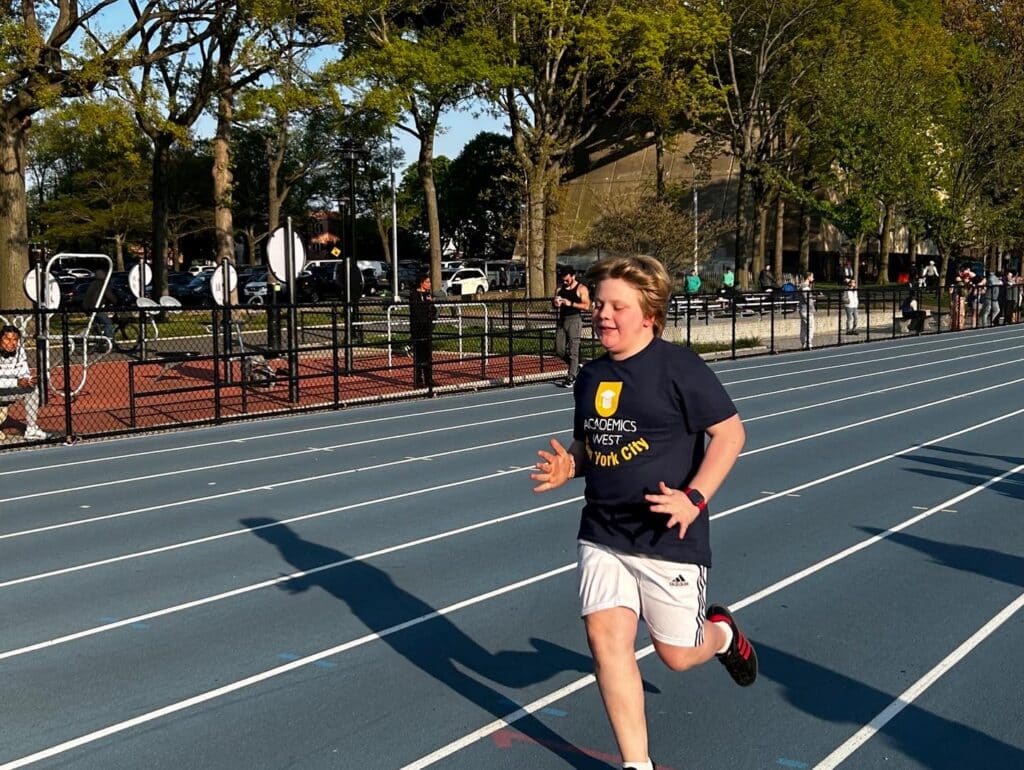Shared by Academics West.
May is Movement Month, a time to raise awareness about the vital role movement plays in promoting mental health. In a world that is moving fast and overwhelming, we must prioritize mental health.
As much as many factors contribute to our overall well-being, movement is one aspect that gets overlooked.
Movement in the form of exercise helps improve mood, boost self-esteem, and reduce stress. Moreover, constant movement will help us sleep better, manage pain and improve our overall health.
There are numerous ways to get moving; some prefer fitness classes, while others much rather work out in the comfort of their own home. Some love the outdoors and feel better walking, running, or biking. There are plenty of at-home body workouts for those who prefer being indoors.
The best thing is to find an activity one enjoys that fits perfectly into their lifestyle. After narrowing it down, the next thing is consistency with the movement/workouts.
Aiming for around thirty minutes on moderate-intensity exercise routines three to four times a week is preferred.
Beginners are encouraged to start slowly and gradually increase the duration and intensity of the workouts over time. Those with health concerns should consult their GP before starting any new exercise program.
The article below explores the significance of Mental Movement. It will touch on the benefits and the different forms of movement and provide practical tips for incorporating more movement into daily living.
The Link Between Movement and Mental Health
- Movement is a natural antidepressant
- Endorphins release positively impacts the mood
- Movement enhances cognitive function
- Movement helps lower stress and is excellent for anxiety management
Movement’s Physical and Emotional Benefits
- Boosts energy levels and vitality
- Improves sleep quality
- It enhances social connections and significantly reduces loneliness
- Eliminates depression and anxiety symptoms
- Effective management and prevention of chronic conditions



Exploring Different Forms of Movement
- Aerobics Exercises positively impact mental health
- Yoga and meditation practices boost mental health
- Tai chi and Qigong mind-body practices bolster mental health and stamina
- Strength training heavily influences self-confidence
- Outdoor activities have immense benefits on mental well-being
Practical Tips for Incorporating Movement into Daily Life
Start Small: Start with easy and enjoyable activities to incorporate into your daily routine.
Goal Setting: Set realistic goals and be consistent with your schedule.
Have fun: Engage in activities that bring you joy and motivate you to move and challenge yourself.
Support: Engage your family and friends or join fitness communities eager to give you help and encouragement.
Incorporate Tech: Make use of technology and apps to track and set your movement. Get inspired by the progress you’re making.
Mindful Movement: Embrace the power of mindful movement and practice being present at the moment.
Piece of advice: If you are searching for ways to improve your mental health, exercise is the best place to start. Each small form of exercise makes a big difference, start moving, and you will begin feeling better with every movement you make!
Tips for Starting Exercise Routines
Goal setting:. Start off with short workouts and gradually increase the duration and intensity as you strengthen.
Enjoyable Activities: Start with activities that you enjoy. If you don’t like a particular activity, you will become demotivated. Fortunately, numerous exercises exist, so finding something you will have fun doing yet challenging will be easy.
Incorporate Exercises into your Routine: Schedule time to conduct exercises every day and stick to them. Consistency is the key, the more you stick to your routine, the more benefits you reap.
Workout Buddy: Working out with a friend will help you stay motivated and accountable. When you don’t feel like it, your workout buddy will encourage you, and you will get it done and reap the benefits afterwards.
Ask for Help: Never shy away from asking for help. If you have difficulty getting started, talk with a personal trainer or a fitness instructor. They will help you create a safe and effective exercise program.
The most critical thing is to get moving. A small amount of exercise will significantly impact your mental health. Get out and start moving!
Conclusion
As we celebrate Movement Month in May, we must acknowledge the impact movement has on mental health. Regular physical activity improves our physical well-being and nurtures our emotional and psychological resilience.
Incorporating daily movement in today’s overwhelming and fast-paced world is essential because it helps prioritize our mental well-being. While many factors contribute to overall well-being, the movement gets overlooked.
We positively impact our mental health by including regular exercise and physical activities in our daily lives. Exercise is beneficial for physical fitness and significantly boosts self-esteem, improves mood, and reduces stress.
Engaging in movement and exercise helps release endorphins, the body’s natural antidepressants that positively impact our mood and overall well-being. Moreover, regular activities boost cognitive function and improve sleep quality.
There are various forms of movement that individuals can choose from based on their preferences and lifestyle, from fitness classes, at-home workouts, and gym workouts to outdoor activities, including walking, running, and biking.
Getting an activity that one enjoys is critical. Consistency is another crucial aspect of movement; going for thirty minutes minimum of moderate-intensity exercise routines three to four times weekly is highly recommended.
The link between movement and mental health is evident. Movement heightens energy and vitality, improves sleep quality, and significantly lowers loneliness.
Movement helps bring down depression and anxiety symptoms and is an effective tool for the management and prevention of chronic conditions. Start with small and easy fun activities in your daily routine.
Set realistic goals and be consistent with a schedule to achieve long-term success. Remember to have fun, engage in activities that bring you joy, and seek support from your family, friends, or fitness communities.
Technology is also great for tracking your movement and registering small wins as you work towards daily and more challenging movements.
May is the perfect time to take the first step toward improving mental health. Lace-up your shoes, step outside, and experience the transformative power of movement.

